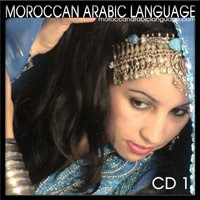For the “my” and “his” forms, the first ending is used for words ending in consonants, while the second is used with words ending in vowels. For example, smiti (my name), but xuya (my brother).
Example of possessive pronouns with the noun “book.”
book ktab
my book ktabi
your (sing.) book ktabk
his book ktabu
her book ktabha
our book ktabna
your (plur.) book ktabkum
their book ktabhum
Most feminine nouns in Arabic have an “a” sound at the end of the word. In Arabic script, this “a” is actually a silent “t” that is only pronounced on certain occasions. For all feminine words ending in this silent “t” , we drop the sound “a” and substitute it with “t” before adding a possessive pronoun.
For example, the feminine noun magana (a watch).
watch magana
my watch maganti
your (sing.) watch magantk
his watch magantu
her watch magantha
our watch magantna
your (plur.) watch magantkum
their watch maganthum
9.26.2008
Subscribe to:
Post Comments (Atom)





No comments:
Post a Comment